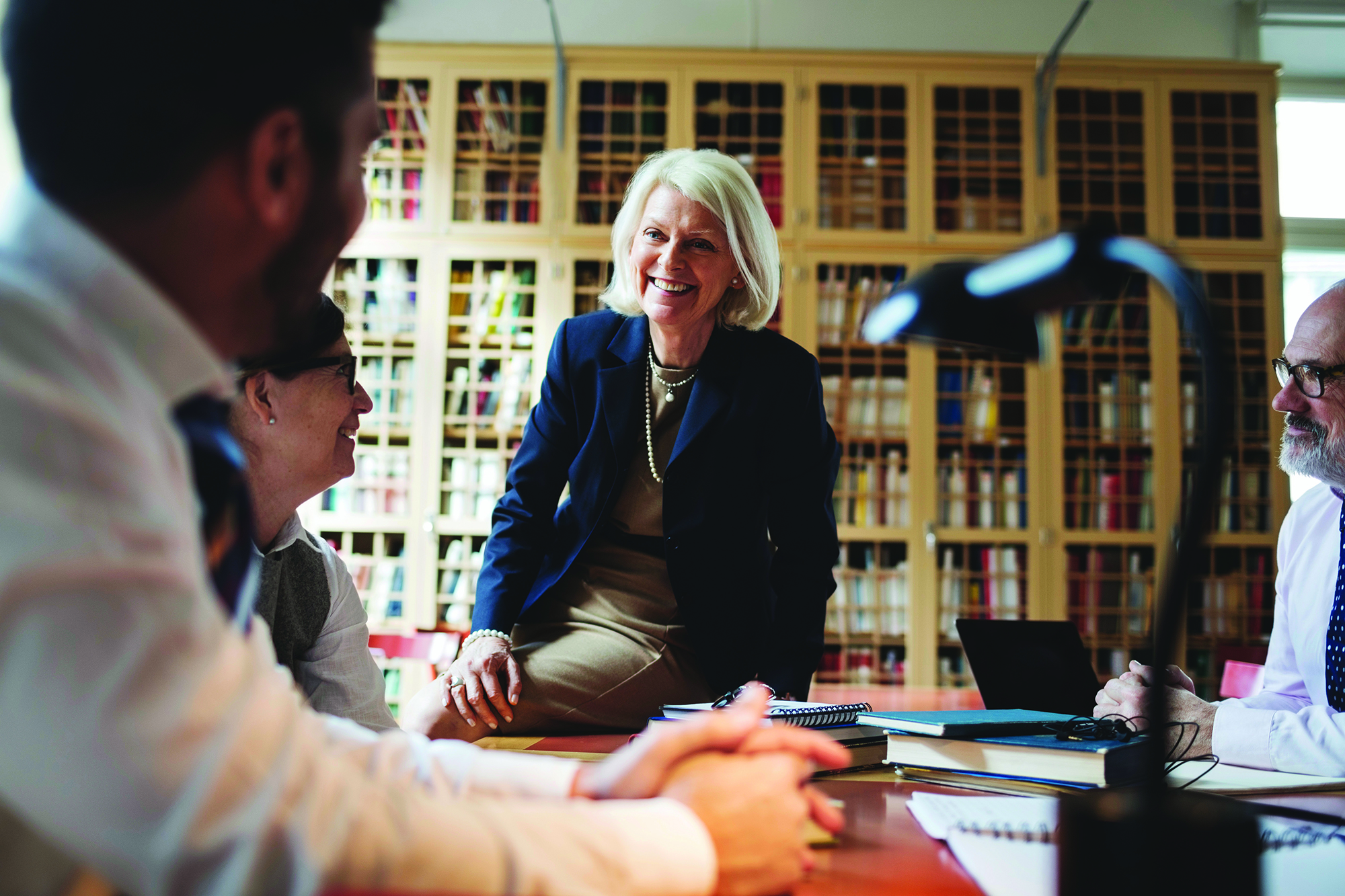
People spend much of their day in their cars. They drive to work in the mornings, pick up kids in the afternoon, and load the car with groceries in the evening. They rarely think about the little piece of plastic that makes it all possible. But for the millions of people who’ve lost their driver’s licenses, it isn’t something they take for granted.
Losing a driver’s license can have life-altering consequences. It makes daily tasks like going to the grocery store difficult and can prevent someone from getting a job or qualifying for services, according to Debbie Clayman, senior vice president and associate general counsel at Truist. “That affects their ability to be part of the community,” she says.
That’s why she and other Truist teammates in Georgia, Virginia, and North Carolina are providing volunteer legal services, called “pro bono,” to help people who can’t afford attorneys restore their driving privileges. Because it’s more than a driver’s license. It’s the engine that allows people to support themselves and their families.
Truist’s pro bono legal team isn’t just helping someone build a better life, according to Clayman. It’s building a better community.
"They often describe it as life-changing”
Truist’s legal teammates collaborate with law firms and nonprofits to lead license restoration clinics. With partner Kilpatrick Townsend & Stockton LLP, for example, Truist volunteers have helped nearly 300 people develop driver’s license restoration plans.
And demand for their services is high. In North Carolina, more than 1.2 million people have lost their licenses because unpaid fines and fees or failing to appear in court, says B. Leigh Wicclair, director of the Restorative Justice Project at the North Carolina Pro Bono Resource Center.
“And that can happen even if it’s the person’s first time ever missing court or getting a ticket,” Wicclair says. “And we’re talking about really low-level tickets: speeding, having a taillight out, that sort of thing. So that’s 15% of all adult drivers in the state.”
Navigating a complex legal process can be intimidating—and expensive. For people living on meager incomes, it can feel impossible.
“People describe feeling like they’re in a hole they just can’t get out of,” Wicclair says.
Truist teammates, who have worked with Wicclair’s organization, are helping fill a critical gap not covered by other legal aid, she says. “If it weren’t for the pro bono volunteers, there just wouldn’t be the service available.”
Truist attorneys also volunteer with Drive-To-Work, a Virginia nonprofit that helps people who were previously incarcerated restore their driving privileges. Teammates lead virtual clinics for inmates who will soon be released and are preparing to rejoin their communities.
Drive-To-Work President and CEO Sara Wilson has seen the difference a driver’s license can make.
“They often describe it as life-changing,” she says.
Providing pro bono help where it matters most
The legal team at Truist has a history of pro bono volunteerism. Following the merger, Ellen Fitzsimmons, Truist chief legal officer and head of public affairs, saw an opportunity to formalize efforts both companies had been so committed to. She asked teammates to create ways to do even more impactful service by developing a Truist companywide pro bono program.
The team also helps with criminal record expunction and with eviction diversion counseling, helping keep people in their homes through mediation and financial education.
Teammates have organized clinics to help health care heroes and first responders with their wills, assisting with generational wealth planning.
“Whether it’s a will or a license restoration clinic, it’s helping people build their life back up and get on a financial footing to succeed and contribute to their community,” says Alex Chudoba, Truist associate general counsel.
“Our goal is to figure out the community’s needs and how to serve those needs through our program or service.”
A culture of volunteerism
Legal teammates are ready to expand the pro bono work. Truist’s goal is to have every attorney participate in one pro bono or volunteer event every year.
The pro bono team identifies opportunities that can have a large and positive ripple effect. Like a two-hour clinic that helps a first responder craft a will that’s going to secure a family’s financial well-being for generations or a session that helps restore the driver’s license of a working single parent.
“Putting together resources, we can do a little work on behalf of each of us, and collectively, we’re going to do a lot of good in the community,” says Clayman.
Read more stories of other Truist teammates who are living Truist’s purpose, to inspire and build better lives and communities.